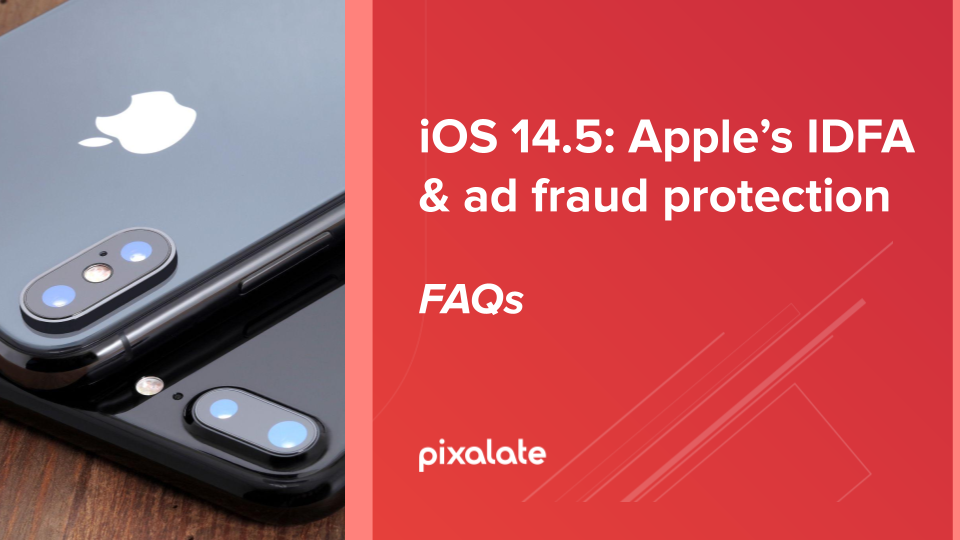
Apple has released iOS 14.5, making IDFA opt-in only. According to Apple:
With the upcoming public release of iOS 14.5, iPadOS 14.5, and tvOS 14.5, all apps must use the AppTrackingTransparency framework to request the user’s permission to track them or to access their device's advertising identifier. Unless you receive permission from the user to enable tracking, the device's advertising identifier value will be all zeros and you may not track them.
Pixalate’s opinion is that all app developers will implement the AppTrackingTransparency framework or risk being delisted from the App Store and ask for the required permissions to track a user’s device advertising identifier. According to a recent “Apple IDFA Survey,” as reported in Forbes, only 38% of iOS users are expected to opt-in. However, this is still an open question, and we are waiting to see what the actual numbers of adoption will be.
Pixalate has been working on providing different methods for alternative ID capture. Our key-value pair (KV) parameters can capture alternative IDs in our tags, such as an SDK user ID and IDFV, when available.
Pixalate plans to incorporate these IDs in our products, to mitigate the impact of reduced IDFA visibility. These IDs can be viable supplements to additional data we collect (e.g., IPv6) to better approximate the same user/device in our global data pool.
View our FAQ for more details.
We will update this blog post as new data is available.
*By entering your email address and clicking Subscribe, you are agreeing to our Terms of Use and Privacy Policy.
These Stories on Mobile
*By entering your email address and clicking Subscribe, you are agreeing to our Terms of Use and Privacy Policy.

Disclaimer: The content of this page reflects Pixalate’s opinions with respect to the factors that Pixalate believes can be useful to the digital media industry. Any proprietary data shared is grounded in Pixalate’s proprietary technology and analytics, which Pixalate is continuously evaluating and updating. Any references to outside sources should not be construed as endorsements. Pixalate’s opinions are just that - opinion, not facts or guarantees.
Per the MRC, “'Fraud' is not intended to represent fraud as defined in various laws, statutes and ordinances or as conventionally used in U.S. Court or other legal proceedings, but rather a custom definition strictly for advertising measurement purposes. Also per the MRC, “‘Invalid Traffic’ is defined generally as traffic that does not meet certain ad serving quality or completeness criteria, or otherwise does not represent legitimate ad traffic that should be included in measurement counts. Among the reasons why ad traffic may be deemed invalid is it is a result of non-human traffic (spiders, bots, etc.), or activity designed to produce fraudulent traffic.”

